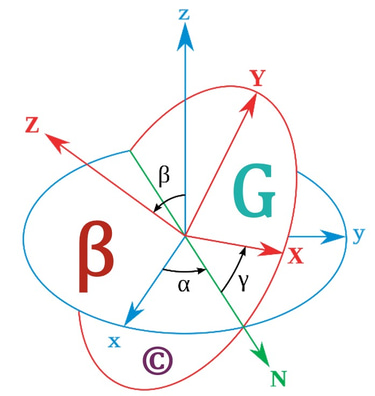The Future of Electrical Engineering: Trends to Watch in 2025
Electrical engineering is at the forefront of technological innovation, driving advancements in energy, automation, and digital transformation. As we enter 2025, several key trends are shaping the future of the industry, influencing how engineers design, implement, and maintain electrical systems.
POWER SYSTEMSELECTRICAL ENGINEERING
Engr. Benjamin V. Gonzales Jr.
2/6/20252 min read
The Future of Electrical Engineering: Trends to Watch in 2025
Electrical engineering is at the forefront of technological innovation, driving advancements in energy, automation, and digital transformation. As we enter 2025, several key trends are shaping the future of the industry, influencing how engineers design, implement, and maintain electrical systems. Here are the top trends to watch:
1. AI and Machine Learning in Electrical Systems
Artificial intelligence (AI) and machine learning (ML) are revolutionizing electrical engineering, particularly in predictive maintenance, grid optimization, and automated control systems. AI-driven analytics enhance efficiency, reduce downtime, and improve decision-making in power distribution and industrial automation.
2. The Rise of Smart Grids
Smart grids are becoming more prevalent, integrating renewable energy sources, real-time monitoring, and demand-response capabilities. These advanced power networks use IoT sensors and AI algorithms to optimize energy flow, reduce losses, and enhance grid reliability.
3. Electrification of Transportation
With the growing adoption of electric vehicles (EVs), electrical engineers are focusing on charging infrastructure, battery technology, and energy management systems. Innovations in fast-charging solutions and wireless charging are set to redefine mobility and sustainability.
4. Advancements in Renewable Energy Technologies
Solar, wind, and other renewable energy sources continue to evolve, with improvements in energy storage, efficiency, and grid integration. Smart inverters, high-capacity batteries, and AI-based energy forecasting are making renewables more viable and cost-effective.
5. 5G and the Internet of Things (IoT)
The deployment of 5G networks is accelerating the adoption of IoT devices in electrical engineering. Smart sensors, remote monitoring, and real-time data analytics are enhancing industrial automation, smart buildings, and energy management systems.
6. Sustainable and Energy-Efficient Designs
Energy efficiency is a priority in electrical engineering, leading to innovations in low-power electronics, energy-efficient lighting, and sustainable building designs. Engineers are integrating green technologies, such as energy harvesting and power factor correction, to minimize energy consumption.
7. Cybersecurity in Electrical Systems
As electrical systems become more interconnected, cybersecurity threats are a growing concern. Engineers must develop secure architectures, implement encryption techniques, and enhance resilience against cyberattacks to protect critical infrastructure.
8. Quantum Computing and Advanced Semiconductors
Quantum computing and next-generation semiconductor technologies are set to revolutionize electrical engineering. These advancements promise faster processing speeds, improved power electronics, and breakthroughs in complex problem-solving.
Conclusion
The future of electrical engineering in 2025 is marked by rapid technological advancements, sustainability efforts, and digital transformation. Engineers must stay ahead of these trends, continuously upgrading their skills and embracing innovative solutions to shape a smarter, more efficient world. As the industry evolves, those who adapt to emerging technologies will lead the way in defining the next era of electrical engineering.





